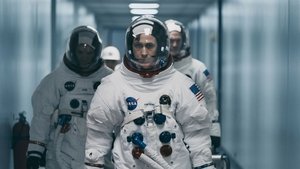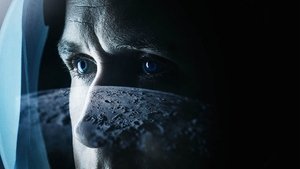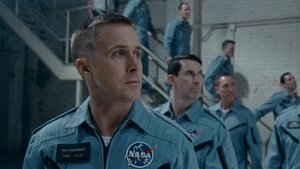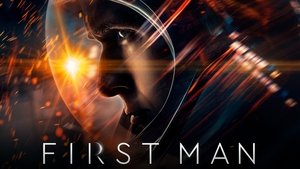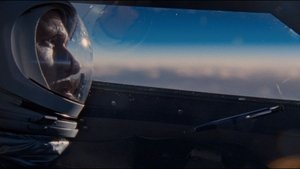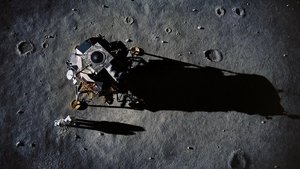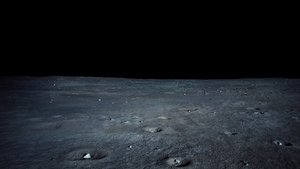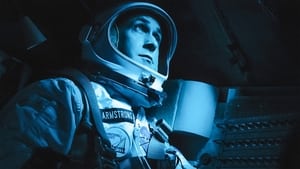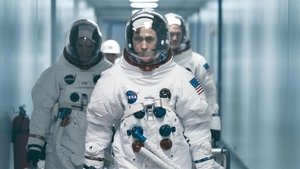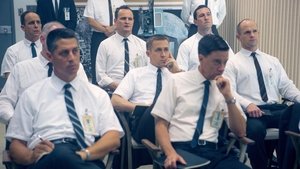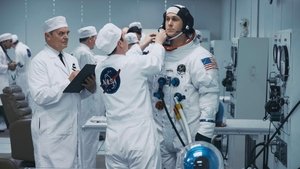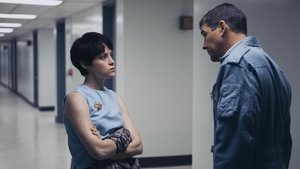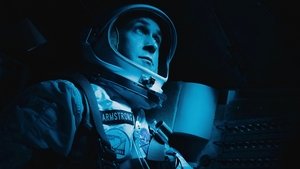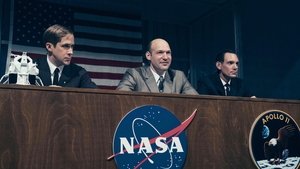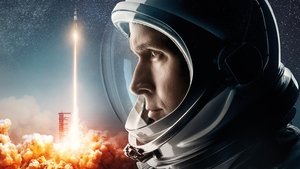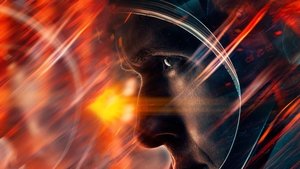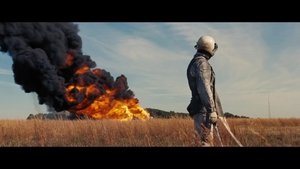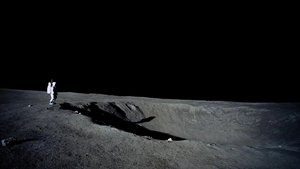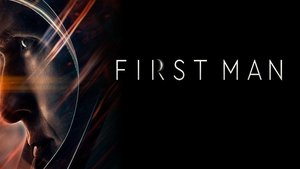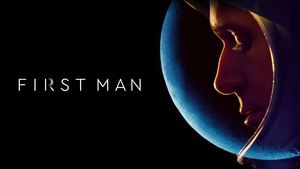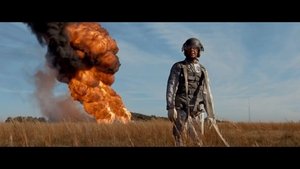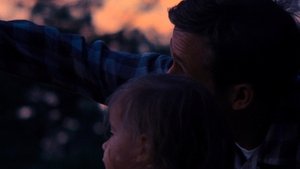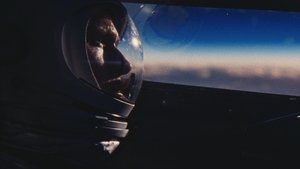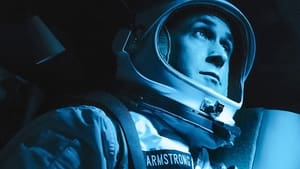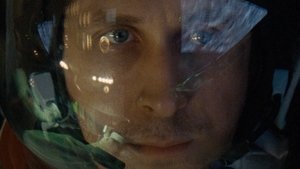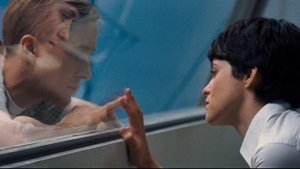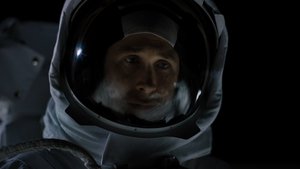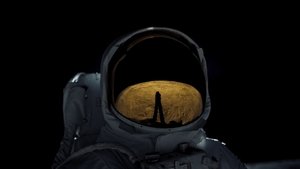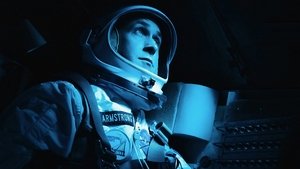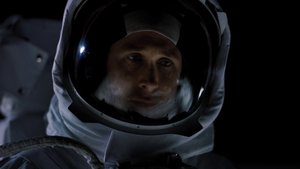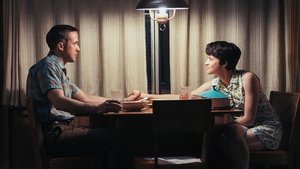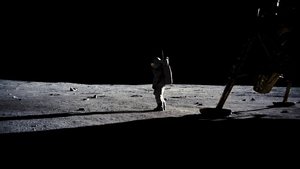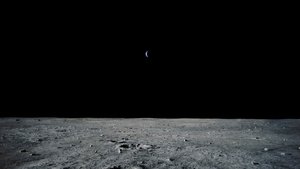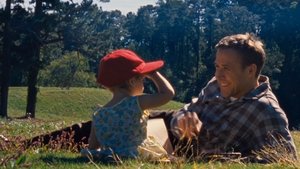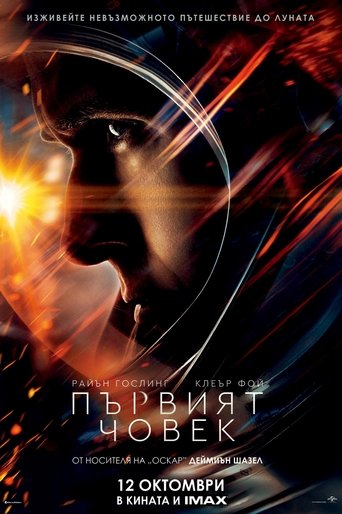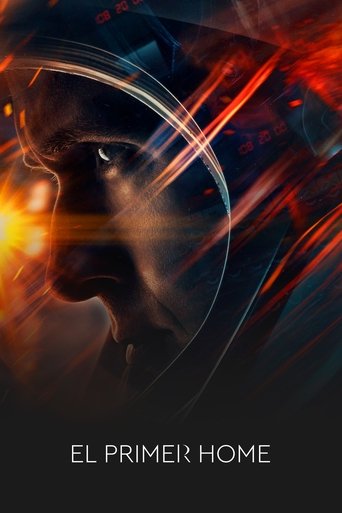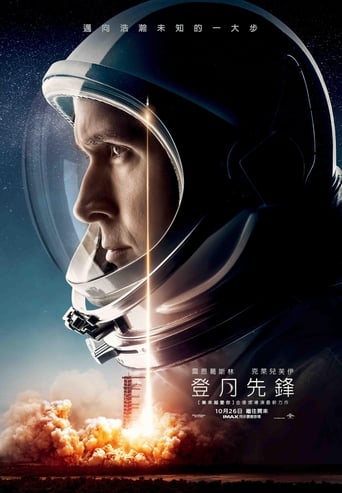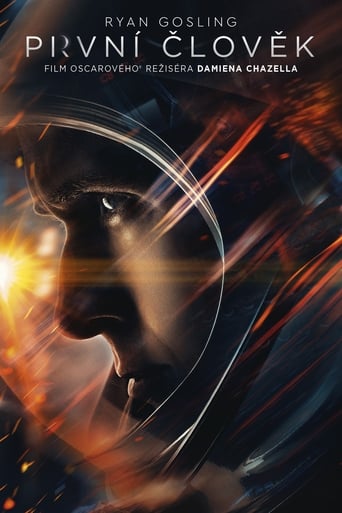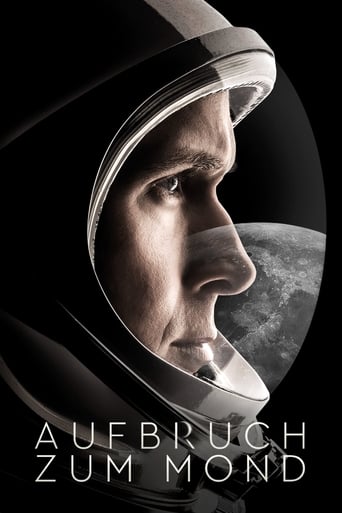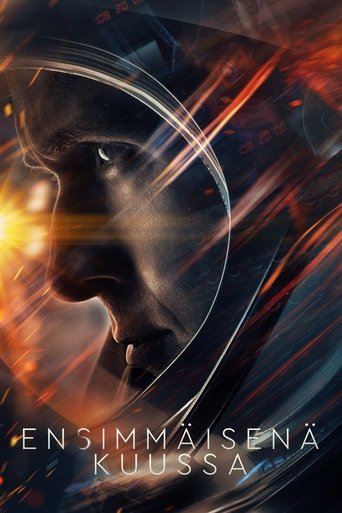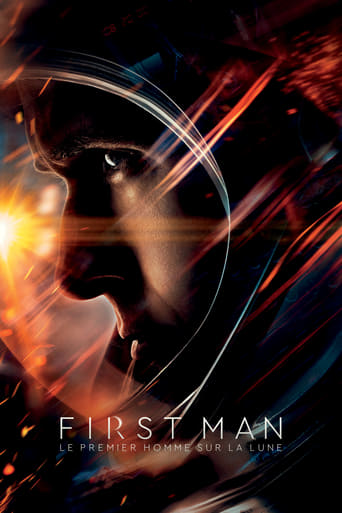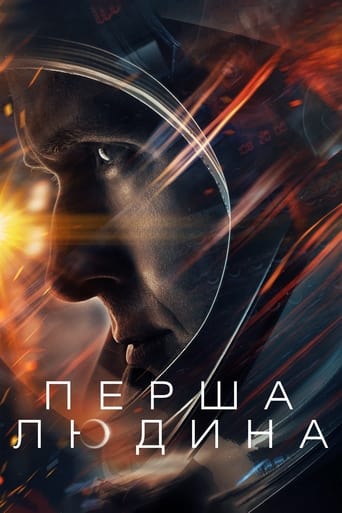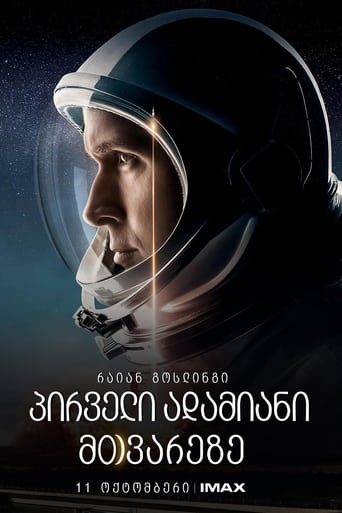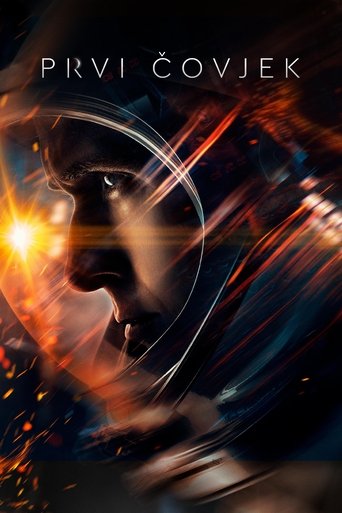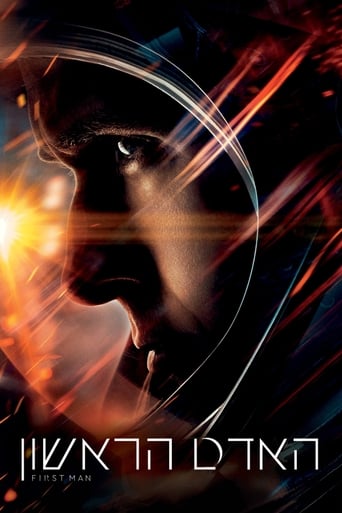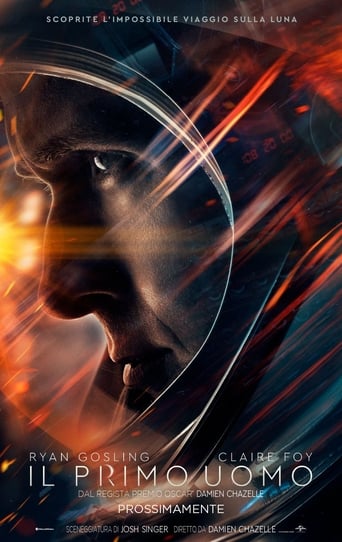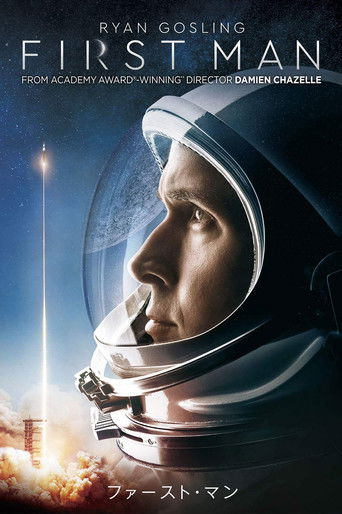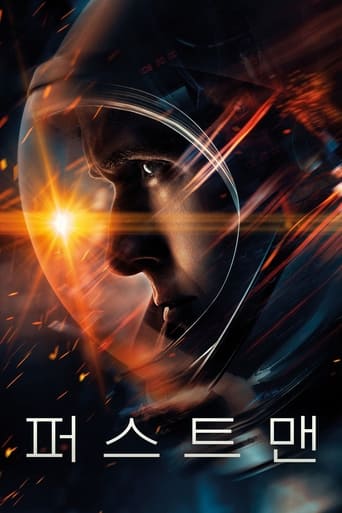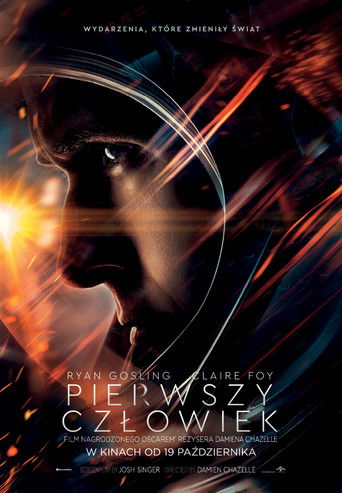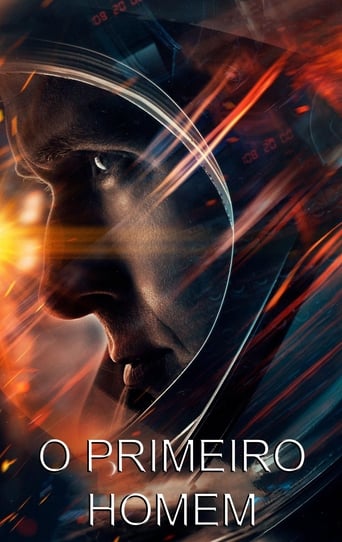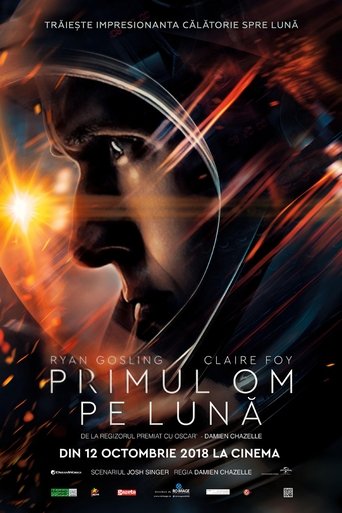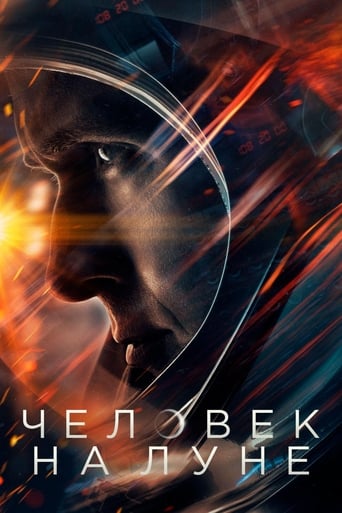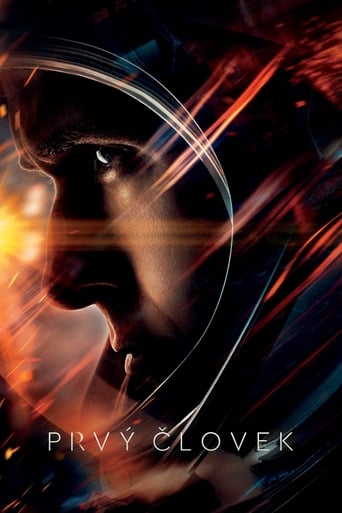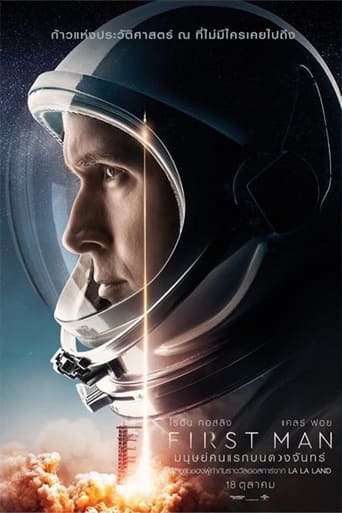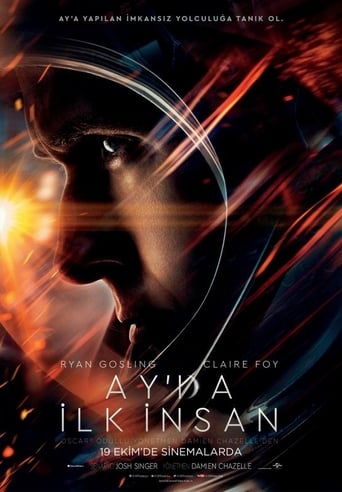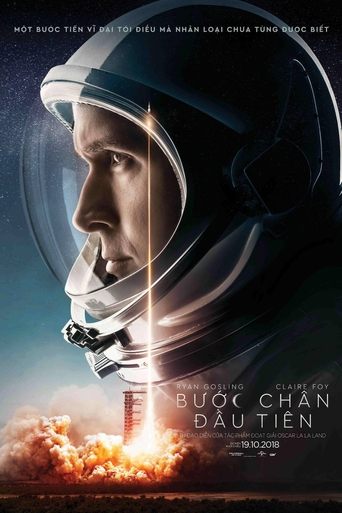
First Man
One giant leap into the unknown.
2018 | 141m | English
Popularity: 8 (history)
| Director: | Damien Chazelle |
|---|---|
| Writer: | Josh Singer, James R. Hansen |
| Staring: |
| A look at the life of the astronaut, Neil Armstrong, and the legendary space mission that led him to become the first man to walk on the Moon on July 20, 1969. | |
| Release Date: | Oct 10, 2018 |
|---|---|
| Director: | Damien Chazelle |
| Writer: | Josh Singer, James R. Hansen |
| Genres: | |
| Keywords | moon, nasa, obsession, space mission, wife, moon landing, cancer, historical event, death of daughter, compromise, test pilot, 1960s, apollo program, america |
| Production Companies | DreamWorks Pictures, Universal Pictures, Temple Hill Entertainment, Perfect World Pictures |
| Box Office |
Revenue: $105,713,218
Budget: $70,000,000 |
| Updates |
Updated: Nov 24, 2025 Entered: Apr 13, 2024 |
| Name | Character |
|---|---|
| Ryan Gosling | Neil Armstrong |
| Claire Foy | Janet Shearon |
| Jason Clarke | Ed White |
| Kyle Chandler | Deke Slayton |
| Corey Stoll | Buzz Aldrin |
| Patrick Fugit | Elliot See |
| Christopher Abbott | David Scott |
| Ciarán Hinds | Robert R. Gilruth |
| Olivia Hamilton | Patricia White |
| Pablo Schreiber | Jim Lovell |
| Shea Whigham | Gus Grissom |
| Lukas Haas | Michael Collins |
| Ethan Embry | Pete Conrad |
| Brian d'Arcy James | Joseph A. Walker |
| Cory Michael Smith | Roger B. Chaffee |
| Kris Rey | Marilyn See |
| Gavin Warren | Young Rick Armstrong |
| Luke Winters | Older Rick Armstrong |
| Connor Blodgett | Mark Armstrong |
| Lucy Stafford | Karen Armstrong |
| J.D. Evermore | Christopher C. Kraft Jr. |
| Leon Bridges | Gil-Scott Heron |
| Steve Coulter | Guenter Wendt |
| Skyler Bible | Richard F. Gordon Jr. |
| William Gregory Lee | Gordon Cooper |
| Choppy Guillotte | John Young |
| Braydyn Nash Helms | Young Ed White Jr. |
| Edmund Grant | Older Ed White Jr. |
| Callie Brown | Young Bonnie White |
| Claire Smith | Older Bonnie White |
| Brady Smith | Butch Butchart |
| John David Whalen | John Glenn |
| Matthew Glave | Chuck Yeager |
| Rodney J. Hobbs | X-15 Flight Surgeon |
| Kermit Rolison | George Mueller |
| Willie Repoley | Jim Fucci |
| Ben Owen | John Hodge |
| Jim Stearns | David Hammock |
| James H. Williams | Pastor |
| Helen S. Jackson | Louise Sheron |
| Ambrit Millhouse | Syringe Tech |
| Mark Armstrong | Paul Haney |
| Kevin Buttimer | MSC Entrance Guard |
| Dustin Lewis | Ralph Morse |
| Robert Hatch | Joe Schmitt |
| Anna Chazelle | White House Staffer |
| Tyner Rushing | White House Staffer |
| Myra Brown | White House Attendant |
| Ronald Hicks | White House Attendee |
| Lawrence Jonasson | White House Attendee |
| Irina Labouz | White House Attendee |
| Anthony Paolucci | Jim |
| Philip Boyd | Reporter |
| Stephanie Turner | Kelsey |
| Timothy Batten | ABC Reporter |
| Aurelien Gaya | Agence France Reporter |
| Todd Truley | Houston Post Reporter |
| Mark Kelly | Reporter - Apollo 11 |
| Tim Olcott | Reporter - Apollo 11 |
| Andrea Maria Hintermaier | Hamburg Press |
| Jamie Anne Allman | Times Reporter |
| Charles Carroll | Senator |
| Brian Mahoney | Fire Inspector |
| Donald Watkins | Protestor |
| Tess Oakland | Diner Patron |
| Michael Lee Kimel | Bill Moon |
| Ryan Clay Forbes | Bill Anders |
| Joshua Powell | MC Engineer |
| Thomas Clay Strickland | MC Engineer |
| Brad Kitchen | Assistant Flight Director |
| Tim Harper | Flight Activities Director |
| Andrew Armstrong | Booster Flight Controller |
| Kevin Johnson | CSQ Agena Systems |
| Damian Lovello | CSQ Gemini Systems |
| Nelson Bonilla | NASA PAO |
| Shawn Eric Jones | Wally Schirra (uncredited) |
| Andrew Stahl | Ken Mattingly |
| Mark Kirkman | MCC Fido |
| Brian David McCay | MCC Retro |
| Mark Schlichting | MCC GNC |
| Mark Yurgil | MCC EECOM |
| Andrew Buckman | MCC Guidance |
| Christopher Sgubin | MCC Network |
| Greg Puckett | Charles Berry (uncredited) |
| Perry Zulu Jr. | Robert Lawrence (uncredited) |
| Katelyn Davis | Sally See (uncredited) |
| George Linkenback | Col. Frank Borman (uncredited) |
| Milton Saul | Reporter (uncredited) |
| Aaron J. Brooks | NASA Pilot (uncredited) |
| Robert Tinsley | NASA Engineer (uncredited) |
| Name | Job |
|---|---|
| Rory Bruen | Art Direction |
| Damien Chazelle | Director |
| Josh Singer | Screenplay |
| Justin Hurwitz | Original Music Composer |
| Tom Cross | Editor |
| Francine Maisler | Casting |
| Nathan Crowley | Production Design |
| Mary Zophres | Costume Design |
| Donald Mowat | Makeup Department Head |
| Dean Bailey | Stunts |
| John Gilbert | Stunts |
| Molly Miller | Stunts |
| Linus Sandgren | Director of Photography |
| Ryan Green | Stunts |
| Ian Hunter | Visual Effects |
| Tim McGovern | Visual Effects Supervisor |
| Scott Robertson | First Assistant Director |
| James M. Churchman | Stunt Coordinator, Second Unit Director |
| Nick Brandon | Stunt Coordinator |
| Dylan Goss | Aerial Director of Photography |
| Harry Yoon | Additional Editing, Additional Editor |
| Lon Haber | Publicist |
| Frédéric North | Pilot |
| Adam Hart | Stunts |
| Justin O'Neal Miller | Art Direction |
| Benjamin Nowicki | Art Direction |
| Erik Osusky | Art Direction |
| Eric Sundahl | Art Direction |
| Thomas Valentine | Art Direction |
| Kathy Lucas | Set Decoration |
| Katelyn Barton | Key Makeup Artist |
| Jerry DeCarlo | Hairstylist |
| Jay Ferrara | Hairstylist |
| Marie Larkin | Hair Department Head |
| Mary H. Ellis | Sound Mixer |
| Kathy Driscoll-Mohler | Casting Associate |
| Ashley Hallford | Casting Assistant |
| Robert Nagle | Stunt Driver, Stunts |
| Allan Padelford | Stunt Driver, Stunts |
| Phil Barrie | Sound Effects Editor |
| Lee Gilmore | Sound Effects Editor |
| Mildred Iatrou | Supervising Sound Editor |
| Ai-Ling Lee | Sound Designer, Sound Re-Recording Mixer |
| Jon Taylor | Sound Re-Recording Mixer |
| James R. Hansen | Book |
| Frank A. Montaño | Sound Re-Recording Mixer |
| J.D. Schwalm | Special Effects Supervisor |
| Wyatt Belton | Hairstylist |
| Victor Paz | Hairstylist |
| Andrew Stahl | Second Assistant Director |
| Spencer Taylor | Second Second Assistant Director |
| Carla Bailey | Scenic Artist |
| Anthony Beddington | Propmaker |
| Andrew Birdzell | Set Designer |
| Zachary Bothwell | Propmaker |
| Jameson Buston | Leadman |
| Luke Castleberry | Greensman |
| Sarah Contant | Set Designer |
| Danielle Couture | Scenic Artist |
| Danelle Davenport | Storyboard Artist |
| Bruce DiValerio | Construction Coordinator |
| Jodi Diodati | Scenic Artist |
| Michele Dobbs | Scenic Artist |
| Philip Ginolfi | Construction Foreman |
| Wyman Heath | Propmaker |
| Duane Hitt | Propmaker |
| Jonathan R. Hodges | Property Master |
| Riley 'Sean' Jones | Assistant Property Master |
| Ethan Kitchens | Greensman |
| Mayumi Konishi-Valentine | Set Designer |
| Jenne Lee | Assistant Art Director |
| Phillis Lehmer | Graphic Designer |
| Jim Magdaleno | Storyboard Artist |
| Kenneth Miles | Greensman |
| John Moredock | Set Designer |
| David Tye | Sculptor |
| Kevin Welborn | Scenic Artist |
| James Bowman | ADR Mixer |
| Jack Cucci | Foley Mixer |
| John T. Cucci | Foley Artist |
| Susan Dawes | Supervising Dialogue Editor |
| Richard Duarte | Foley Mixer |
| Jeff Gomillion | ADR Mixer |
| Galen Goodpaster | ADR Editor |
| Matthew Harrison | Foley Editor |
| Dan O'Connell | Foley Artist |
| Thomas J. O'Connell | ADR Mixer |
| Mark Pappas | Foley Editor |
| Anthony Cady | Key Grip |
| Stephen Crowley | Gaffer |
| Michael J. Davis | Best Boy Electric |
| Andy Hoehn | First Assistant "B" Camera |
| Drew S. Holden | Rigging Grip |
| Ross Jones | Dolly Grip |
| Bill McClelland | Camera Operator |
| Daniel C. McFadden | Still Photographer |
| Davon Slininger | Camera Operator |
| Jorge Sánchez | First Assistant "A" Camera |
| Paul E. Woods | Second Assistant "B" Camera |
| Frankie Zamora | Best Boy Grip |
| Steve Zigler | Rigging Gaffer |
| Rose Locke | Extras Casting |
| Leigh Bell | Key Costumer |
| Fontella Boone | Tailor |
| Synithia Cochran | Seamstress |
| Stephanie Logan | Costume Coordinator |
| Donna O'Neal | Costume Supervisor |
| Derek Drouin | First Assistant Editor |
| Eric Kench | Assistant Editor |
| Jennifer Stellema | First Assistant Editor |
| Phillip Trujillo | Assistant Editor |
| John To | Additional Editor |
| Jason Ruder | Supervising Music Editor |
| Sheila Waldron | Script Supervisor |
| Steve Cainas | Production Coordinator |
| Elisa Carlson | Dialect Coach |
| Kate Cavendish | Publicist |
| William Conacher | Dialect Coach |
| Abigail Hilton | Studio Teacher |
| Steve Hinton | Pilot |
| Rachael M. Roth | Unit Publicist |
| Douglas Settles | Production Secretary |
| Daniel Vice | Set Medic |
| Tom Brown | Music Arranger |
| Nia Hansen | Sound Effects Editor |
| Tristan Myles | Visual Effects Supervisor |
| Shaun McLane | Stunts, Stunt Double |
| Carla Martinez | Assistant Art Director |
| Paul Lambert | Visual Effects Supervisor |
| Kaylee Kehne-Swisher | Makeup Artist |
| Richard B. Wester | Leadman |
| Melissa Fisher | Second Assistant "A" Camera |
| Lena Glikson | Music Editor |
| Ben Skorstad | Pilot |
| Michelle Eisenreich | Visual Effects Producer |
| Name | Title |
|---|---|
| Damien Chazelle | Producer |
| Wyck Godfrey | Producer |
| Steven Spielberg | Executive Producer |
| Marty Bowen | Producer |
| Isaac Klausner | Producer |
| Josh Singer | Executive Producer |
| James R. Hansen | Co-Producer |
| Adam Merims | Executive Producer |
| Jeffrey Harlacker | Co-Producer |
| Kevin Elam | Associate Producer |
| Organization | Category | Person | |
|---|---|---|---|
| Venice Film Festival | Best Actor | Ryan Gosling | Nominated |
Popularity History
| Year | Month | Avg | Max | Min |
|---|---|---|---|---|
| 2024 | 4 | 45 | 70 | 27 |
| 2024 | 5 | 55 | 98 | 33 |
| 2024 | 6 | 35 | 57 | 23 |
| 2024 | 7 | 43 | 88 | 24 |
| 2024 | 8 | 35 | 68 | 21 |
| 2024 | 9 | 22 | 36 | 17 |
| 2024 | 10 | 31 | 54 | 18 |
| 2024 | 11 | 26 | 45 | 16 |
| 2024 | 12 | 28 | 45 | 20 |
| 2025 | 1 | 31 | 58 | 20 |
| 2025 | 2 | 22 | 43 | 5 |
| 2025 | 3 | 9 | 26 | 3 |
| 2025 | 4 | 4 | 5 | 3 |
| 2025 | 5 | 4 | 6 | 3 |
| 2025 | 6 | 3 | 5 | 2 |
| 2025 | 7 | 3 | 4 | 3 |
| 2025 | 8 | 4 | 8 | 2 |
| 2025 | 9 | 5 | 8 | 3 |
| 2025 | 10 | 4 | 6 | 2 |
| 2025 | 11 | 3 | 4 | 2 |
| 2025 | 12 | 3 | 6 | 2 |
| 2026 | 1 | 4 | 5 | 3 |
| 2026 | 2 | 5 | 8 | 3 |
Trending Position
| Year | Month | High | Avg |
|---|---|---|---|
| 2026 | 1 | 954 | 954 |
| Year | Month | High | Avg |
|---|---|---|---|
| 2025 | 12 | 727 | 873 |
| Year | Month | High | Avg |
|---|---|---|---|
| 2025 | 11 | 561 | 838 |
| Year | Month | High | Avg |
|---|---|---|---|
| 2025 | 10 | 731 | 841 |
| Year | Month | High | Avg |
|---|---|---|---|
| 2025 | 9 | 820 | 869 |
| Year | Month | High | Avg |
|---|---|---|---|
| 2025 | 8 | 675 | 870 |
| Year | Month | High | Avg |
|---|---|---|---|
| 2025 | 7 | 487 | 765 |
| Year | Month | High | Avg |
|---|---|---|---|
| 2025 | 6 | 750 | 855 |
| Year | Month | High | Avg |
|---|---|---|---|
| 2025 | 5 | 420 | 748 |
| Year | Month | High | Avg |
|---|---|---|---|
| 2025 | 4 | 528 | 785 |
| Year | Month | High | Avg |
|---|---|---|---|
| 2025 | 3 | 701 | 823 |
| Year | Month | High | Avg |
|---|---|---|---|
| 2025 | 2 | 404 | 732 |
| Year | Month | High | Avg |
|---|---|---|---|
| 2025 | 1 | 244 | 674 |
| Year | Month | High | Avg |
|---|---|---|---|
| 2024 | 12 | 663 | 784 |
| Year | Month | High | Avg |
|---|---|---|---|
| 2024 | 11 | 539 | 613 |
| Year | Month | High | Avg |
|---|---|---|---|
| 2024 | 10 | 609 | 795 |
| Year | Month | High | Avg |
|---|---|---|---|
| 2024 | 8 | 814 | 920 |
Damien Chazelle has already proven himself to be one of the freshest new directors of the decade so far. Even after delivering the hard-hitting Whiplash and the emotionally-wrecking and whimsical La La Land, he still knows how to surprise fans of his work, returning to the silver screen with grace. ... Combining every element of his previous outings that made him a household name, Chazelle makes sure the audience feels every ounce of power that he's thrown into his latest directorial effort. Oddly enough, it's his first foray into biopic territory, a zone where many revered filmmakers have failed to capture the reality of the moment they're attempting to bring to life. Going in, you'll already know how the movie ends, which is the problem most directors encounter when making a biopic. Finding a way to transfer the actuality of the moment while still feeling original and never appearing boring is a hard task that very few have been able to truly accomplish. With First Man, Chazelle manages to land a spot on that list of directors, and for good reason. He keeps true to the true story with a film that's so intense and fully realized that you might forget that it actually happened. Space movies have always been a highlight of cinema. From Georges Méliès' 1902 silent film A Trip to the Moon and Stanley Kubrick's 2001: A Space Odyssey to the Star Wars and Alien franchises, films taking place in the farthest reaches of the universe prove to be some of the most intriguing and original creations brought to viewers' eyes (even by today's standards). It's the true stories that really prove to be some of the most effective, however. Sure, fictional ones show us what could be possible; but it's the depictions of true events that show us what was possible, creating a harrowing story of patriotism in the process. From a technical perspective, First Man is a marvel on all fronts. Linus Sandgren, the cinematographer who won an Academy Award for his work on La La Land, returns to collaborate with Chazelle and once again delivers a grand spectacle that should not be missed out on while in theaters. The cinematography is stunning. Hues of yellow and blue pop, lighting a path towards the characters and showing no sign of stopping once they've started. Certain scenes are given an extra boost from the home-video-style camerawork, beautifully grainy and shaky in all of the right ways. Justin Hurwitz (Chazelle's roommate in college), another frequent collaborator, also returns to score the film and knocks it out of the park as expected. Hurwitz obviously knows how to write music, but its how his compositions fit in with the scenes and themes they're tied to that make them so worthwhile. Hurwitz invests you in the midst of all the chaos with all of the orchestral beauty surrounding his pieces. That's the thing about his scores, though: it's hard to objectively rank them because of how different they all are. Chazelle is a unique director because he never sticks to the same formula over an over again, and the same can be said for the accompanying music for each of them. Acting is on point here; Ryan Gosling hits a huge emotional nerve with incredibly investing performance as Neil Armstrong. He keeps to himself (namely, his personal life) but is willing to risk it all for the mission. Nothing from Gosling is single-layered; everything is complex and detailed to the point that you might as well be in the room with him. Claire Foy also delivers an amazing portrayal as Janet Armstrong, Neil's wife. Foy topples every housewife stereotype that embodied this specific time period, giving a strong, contained, and free-willed performance of a woman who is certainly not afraid to share her thoughts on issues concerning her husband. The flag controversy is totally stupid. The moon landing scene doesn't need the image of Armstrong planting the flag on the moon to dish up a heavily emotional response from the audience. If you get a chance to screen it in IMAX, definitely do. The expanded aspect ratio only comes into play during this specific scene but it is utterly transfixing. First Man is one of the best films of the year, no doubt about it. Every shot is perfection. Every sound is excellence. There is no comparison to what Damien Chazelle and co. have accomplished here; even iconic films like Apollo 13 can't live up to the new bar of quality Chazelle has set for the space drama subgenre. A harrowing journey from start-to-finish, and a true masterwork in many respects, First Man is one film that delivers upon its promise and then some. Performances and technicalities are perfect, but that's what Chazelle will continue to be known for: perfection.
A really encouraging film for a historic event. The music and silence are playing so well with each other. I am glad that the directors and actors did not waste a wonderful story. Though I always think the leading actor's appearance is significantly different from origin Neil, it does not affect the ... intense feelings.
Every time that someone's on a spacecraft, I was into _First Man_. It might genuinely be the first time I didn't hate scenes shot with continual use of shaky cam, which is noteworthy. But by and large _First Man_ was not for me, biopics often aren't, and _First Man_ is absolutely a biopic. It's not ... about NASA, or the Space Race, or landing on the moon, on astronauts, those things are present, but it's about Armstrong. I know that, because he is the only person, place or thing we get any real insight into. _Final rating:★★½ - Had a lot that appealed to me, didn’t quite work as a whole._
**_Aesthetically laudable, emotionally vapid_** > _I am comfortable with my level of public discourse._ - Neil Armstrong declining to be interviewed for "Armstrong's Code" (Kathy Sawyer); _The Washington Post_ (July 11, 1999) More an intimate character drama than a grandiose examination of ... man's place in the cosmos, _First Man_ is far more concerned with domesticity than the actual journey to the moon, attempting to demonstrate that behind the great moments of history exist personal demons and private motivations. Nothing wrong with that of course – contextualising small character beats against a larger historical canvas can produce excellent cinema. Terrence Malick's _The Thin Red Line_ (1998), for example, uses the Battle of Guadalcanal as the background against which to engage all manner of personalised existential Heideggerian philosophical conundrums, whilst Michael Mann's _Ali_ (2001) is more interested in Ali's private struggles outside the ring than his public bouts within it. However, for this kind of storytelling to work, one thing is essential – emotional connection. The audience must, in some way, care about the people on screen, otherwise their introspective problems are more than likely to feel like they are just getting in the way of the larger story. And that is exactly what happens in _First Man_ – there is a lifelessness at the film's core, an emotional vapidity that can't be filled by exceptional technical achievements and laudable craft. The film attempts to celebrate Project Gemini and the Apollo Program, whilst also working as a character study of a man known for his emotional taciturnity. And whilst it achieves the former, the film's Neil Armstrong (Ryan Gosling) is so stoic and closed-off as to be virtually disconnected from the rest of humanity. Based on James R. Hansen's 2005 biography, _First Man: The Life of Neil A. Armstrong_, the film begins in 1961, with the sixth of Armstrong's seven North American X-15 research flights (which actually took place in April 1962). Ascending to 207,000 ft., when Armstrong attempts to turn the aircraft back towards the landing strip at Edwards Air Force Base, a control malfunction causes him to hold the nose up for too long, and he accidentally bounces off the atmosphere, forcing him to take drastic action to land. From there, the film hits all the beats you would expect in the lead up to the Apollo 11 mission in 1969; the death of his daughter, Karen (Lucy Stafford) from a brain tumour; his acceptance into Project Gemini; his friendships with Elliot See (Patrick Fugit) and Ed White (Jason Clarke); NASA's shock at the Soviet's successes in the Space Race, particularly Alexy Leonov's EVA; Armstrong's selection as commander of Gemini 8; See's death in a Northrop T-38 Talon crash; Gemini 8's calamitous docking with the Agena Target Vehicle; the death of White, Gus Grissom (Shea Whigham), and Roger B. Chaffee (Corey Michael Smith) during a plugs-out test of Apollo 1; Armstrong's near death whilst testing the Lunar Landing Research Vehicle; his selection as commander of Apollo 11; his marriage problems with his first wife, Janet (Claire Foy); the lunar landing alongside Buzz Aldrin (Corey Stoll); Armstrong's private sojourn to the Lunar East crater; and finally, the return to Earth. Within this framework, the film remains tied almost exclusively to Armstrong's perspective, with the occasional shift to Janet. This sets up something of a problem, as the real-life Armstrong was very much a reluctant celebrity/national hero, and despite his extraordinary accomplishments, he was not the most interesting, relatable, or easy-to-empathise-with-individual. Never one for the spotlight, when Hansen's biography was published, Armstrong was living unassumingly in a quiet Cincinnati suburb, whilst in a famous 2001 comment, when asked in an interview for the Johnson Space Center Oral History Project if he had ever gazed at the moon prior to the Apollo 11 mission, he replied, "_No, I never did that_." With this in mind, the film sets itself the task of attempting to penetrate this most private of men, explaining why he was so singularly driven, even to the detriment of his family, to the point where not only did he plan not to tell his children he may not return from the Apollo 11 mission, he intended to leave without saying goodbye at all, until Janet changed his mind. And herein lies perhaps the film's most egregious failing. It's almost as if director Damien Chazelle (_Whiplash_; _La La Land_) and screenwriter Josh Singer (_Spotlight_; _The Post_) think the Apollo 11 mission isn't interesting enough by itself – there needs to be some kind of deeper "why" behind the whole enterprise. Armstrong can't simply be a driven individual, his heroism isn't enough, there must be some kind of psychological motivating factor. In any case, the attempts to tease out the inner workings of Armstrong's mind don't really work, as he remains very much in his own world, impenetrable to both the other characters in the film, and the audience – no matter what Gosling, Chazelle, and Singer do to dress him up, Armstrong comes across as aloof and interiorised. Partly at fault here is Gosling's performance, with its fulcrum of emotionless stoic masculinity. This is a performance we've seen him give several times before – Henry Bean's _The Believer_ (2001), Nicholas Winding Refn's _Drive_ (2011), and, especially, Denis Villeneuve's _Blade Runner 2049_ (2017) all spring to mind - and this familiarity doesn't help matters. Instead of giving the character hidden depth, the few discernible traits he possesses make him something of a cardboard cut-out, a 21st-century screenwriter's idea of what an American man who grew up in the 40s and 50s should be (complete with retconned political correctness). Another issue is that the filmmakers choose to locate Armstrong's primary motivation in Karen's death, which is presented with a mawkish sentimentality that, at best, fails to convince, and, at worst, actively distracts. With the lunar mission presented as much about advancing mankind as it is dealing with personal trauma, Chazelle goes to great lengths to link Karen's death with Armstrong's determination – as she is dying, he holds her and looks wistfully into the sky (indeed, whilst the real-life Armstrong attests to never gazing profoundly at the moon, the film's Armstrong never stops looking at the thing); after her funeral, he slips her bracelet into a drawer; later, he has an hallucinatory vision of her playing with other children; and on the moon's surface, he drops the bracelet into the Lunar East crater and cries a few tears for her. At one point, Janet reveals that Armstrong never mentioned Karen after the funeral, and that's a believable, and deeply emotional, detail. The problem lies in the overkill surrounding it, detracting from whatever genuine emotion such details should evoke. Every time we see Gosling stare yearningly into the sky, the potency of the film is diluted just a little bit more. A big question in all of this, of course, is whether Armstrong really dropped the bracelet into the crater, had a vision of his daughter, and shed a few manly tears, or is this Hollywood romanticising history? The answer is, we don't know. During his interviews with Armstrong and Janet for the biography, Hansen formulated the theory that maybe Neil left something for Karen on the surface. However, when Hansen asked Armstrong if he could see the manifest for the mission, Armstrong told him he had lost it, something which would have been highly out of character for such a fastidious record-keeper. In fact, he hadn't lost it, he had donated it to the Purdue University Archives, but it is under seal until 2020. However, when Hansen asked Armstrong's sister June if it was possible he had left something of Karen's, she said that it was. So, the fact is we don't know what Armstrong did when he wandered over to the crater (his sojourn there was literally the only part of the landing that wasn't by-the-book). However, for me, the whole thing comes across as far too syrupy, an amateur psychological profiling of a man who was intensely private. Personally, I would have much preferred the Lunar East trip to remain a mystery – by showing us what they think might have happened, Hansen, Singer, and Chazelle cheapen the intensely personal nature of the moment, which Armstrong obviously chose to keep secret for a reason. A good example of the film's attempts to shoehorn everything into a writer's conception of the story concerns Armstrong's training on the MASTIF (Multiple Axis Space Test Inertia Facility). The film shows him passing out, before coming to, and asking to go again. This pays off later when the Gemini 8-Agena docking goes wrong, and Armstrong experiences the same forces as he did in the MASTIF. However, because of his experience, he remains conscious, and is able to retrieve the situation. Except Armstrong never trained on the MASTIF. The device was abandoned after Project Mercury as NASA felt it was unrealistic, and didn't prepare the pilots for anything they would ever experience in reality. It's one of the ironies of NASA history that the man who experienced what the MASTIF simulated never trained on the machine itself. The problem here is that the real story (Armstrong's sheer force of will helps him overcome the odds) is infinitely better than the invented one (Armstrong's training helped him overcome the odds), which is indicative of a larger problem – the film always seems like someone's idea of what happened. Aesthetically, Chazelle wastes absolutely no time in letting us know that this is Armstrong's film, with the excellent opening sequence taking place primarily from his POV. However, the scene also introduces the first example of Chazelle's pungent romanticism. As the shaking of Armstrong's X-15 momentarily stops, and the noise dies away, a majestic sense of calm descends. However, rather than trust the audience to extract their own interpretation of the moment, Chazelle can't resist a BCU of Gosling's eyes, with the curvature of the earth reflecting on his visor. On the other hand, a well-handled aspect of this technique is that because the film adheres so rigidly to Armstrong's perspective, very little of what he himself can't see is shown. So, for example, instead of depicting the vast infinite expanses of space, Chazelle keeps the audience tucked tightly inside the _Eagle_ landing module (at least up to the point of the descent to Tranquility Base). Indeed, make no mistake, the lunar landing itself is beyond spectacular, with the incredible score by Justin Hurwitz and the superb cinematography of Linus Sandgren (_American Hustle_; _Joy_) coming into their own. The sequence was shot in 70mm IMAX, and it makes extraordinary use of the larger frame, with the first panorama of the lunar surface as awe-inspiring as anything in Stanley Kubrick's _2001: A Space Odyssey_ (1968) or Terrence Malick's _The Tree of Life_ (2011). An especially well-directed part of the lunar descent is that rather than lay down a busy foley track, Chazelle pulls out the sound out altogether, creating an eerie, otherworldly moment that literally gave me goosebumps. Thematically, as with all three of Chazelle's previous films, the clash between the domestic and the professional is front-and-centre. _Guy and Madeline on a Park Bench_ (2009), _Whiplash_ (2014), and _La La Land_ (2016) all focus on artists who sacrifice emotional relationships so as to reach an artistic peak – they are all stories of men whose passionate devotion to their work and pursuit of perfection alienates the women in their lives. In this sense, _First Man_ very much fits Chazelle's _oeuvre_, he seems as obsessed with how men attempt to balance work and home-life as is Michael Mann. Armstrong is not an artist, of course, but he is a perfectionist, and the pursuit of his craft does make the woman who loves him unhappy. To this end, Chazelle utilises various methods, such as having NASA radio chatter play over scenes of Jan at home alone. The film's ending is also extremely low-key and private, stripping away the finery of the Apollo mission, and leaving us instead with two people attempting to re-connect. However, despite the magisterial last 30 minutes, and some sporadically well-handled moments, _First Man_ is underwhelming, and, for long portions, interminably dull. As good as that final sequence is, it's no compensation for the plodding and lifeless two hours that precede it. And overall, the film isn't a patch on Philip Kaufman's _The Right Stuff_.
Showing us the physical and emotional challenges Armstrong had to endure, the first half is already impressive, but the exciting landing scene and stunning moon scenes near the ending make ‘First Man’ a true and rare experience. 9/10 ...




































